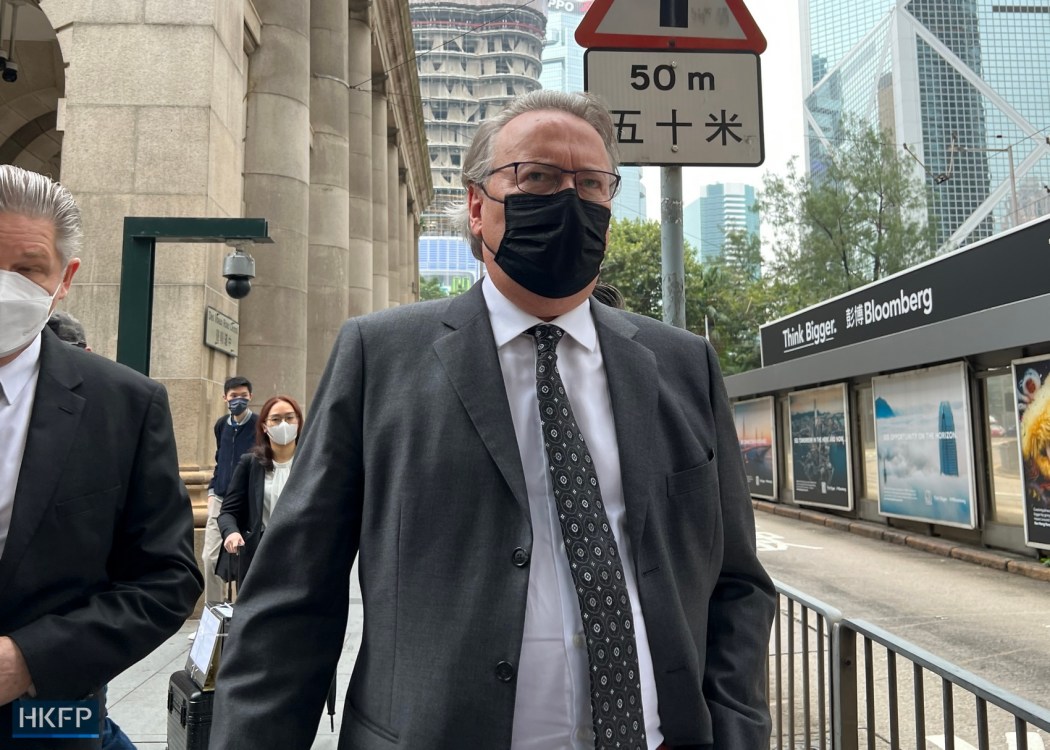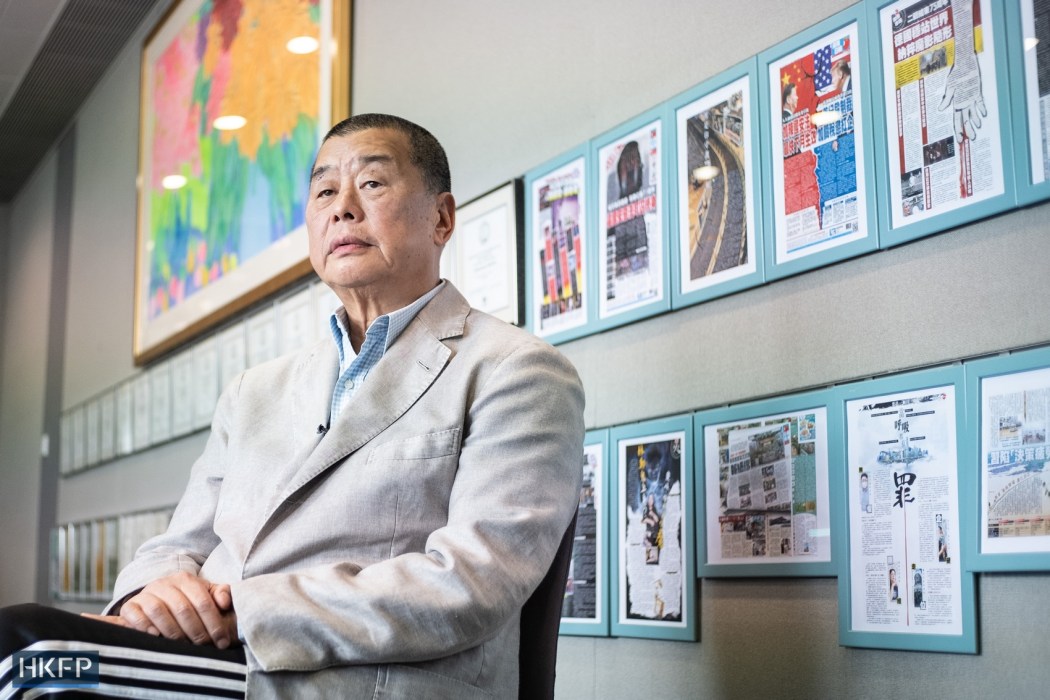Hong Kong’s High Court will hear an application from the Department of Justice (DoJ) to adjourn the national security trial against media tycoon Jimmy Lai on Thursday, the day it is set to begin. The proposed delay comes as the city awaits a legislative interpretation from a top Chinese decision-making body on whether overseas counsels are allowed to take part in national security cases.
Lai, 74, stands accused of four offences: two counts of conspiracy to collude with external forces and one count of collusion with foreign forces under the Beijing-imposed national security law, and one count of conspiracy concerning alleged seditious materials under the colonial-era legislation.

Lai, who has been remanded in custody since December 2020, is set to stand trial alongside three companies linked to the defunct pro-democracy tabloid he founded, Apple Daily.
However, the DoJ applied to adjourn the hearing after the city’s top court dismissed the justice department’s fourth attempt to block a UK barrister from representing Lai. The application will be heard by a panel of three handpicked national security judges: Esther Toh, Susana D’Almada Remedios, and Alex Lee
The Court of First Instance granted an application to admit King’s Counsel Timothy Owen as Lai’s legal representative in October despite objections from the DoJ and the Bar Council.

The government had since launched three appeals against Owen’s admission, all of which were rejected by the Court of Appeal and the Court of Final Appeal.
The latest ruling from the top court on Monday, handed down just three days before the trial, led to Chief Executive John Lee’s proposal to Beijing hours later, inviting a legislative interpretation from the Standing Committee of the National People’s Congress (NPCSC).
The chief executive requested Beijing to exercise its power, as listed in Article 65 of the sweeping security legislation, to clarify whether foreign lawyers who are not qualified to practise in Hong Kong can take part in national security cases in any form.
Timeline of debate over admission of Timothy Owen – cilck to expand:
- September 30: Senior Counsel Robert Pang revealed in a case management hearing that the DoJ and Bar Council opposed Lai’s bid to hire UK barrister Timothy Owen.
- October 19: High Court Judge Jeremy Poon granted an application to admit Owen as Lai’s counsel.
- October 27: Senior Counsel Benjamin Yu filed an appeal against the admission of Owen on behalf of the DoJ to the Court of Appeal.
- November 9: A panel of three judges in the Court of Appeal ruled against the DoJ’s appeal.
- November 15: The DoJ told HKFP that it had filed an application to the Court of Appeal for leave to appeal against Owen’s admission at the Court of Final Appeal.
- November 21: The Court of Appeal rejected the DoJ’s application for leave to appeal, filed by ex-justice secretary Rimsky Yuen.
- November 22: The DoJ files final appeal attempt to the top court.
- November 28, 4 p.m.: The Court of Final Appeal dismissed the DoJ’s application for leave to appeal.
- November 28, 6:45 p.m.: Chief Executive John Lee held a press conference announcing that he would invite Beijing to intervene.
- November 29: The DoJ applied to adjourn the trial.
While the security law, enacted in June 2020, specified that such cases could only be handled by designated judges, it did not specify any limits over lawyers.
Application to halt hearing
Toh, Remedios, and Lee are also expected to handle an application to halt the trial from Lai’s team. Senior Counsel Robert Pang, who represented Lai in a pre-trial review in mid-November, said then that grounds for the application included the fact that the trial will be heard by a panel of three judges, instead of a jury.

Trials at the High Court are usually heard by a jury. However, under the national security law, a jury can be excluded under reasons such as the need to protect state secrets or to ensure the safety of members of the jury and their families.
Apple Daily is the first media outlet to be charged under the security legislation, which also criminalised subversion, secession, and terrorist acts.
Six other defendants in the case, who were ex-staff members of Apple Daily or its parent company Next Digital, pleaded guilty last month, and will be sentenced after the trial. Some of the defendants will testify against Lai in the trial.
Support HKFP | Policies & Ethics | Error/typo? | Contact Us | Newsletter | Transparency & Annual Report | Apps
Help safeguard press freedom & keep HKFP free for all readers by supporting our team
























